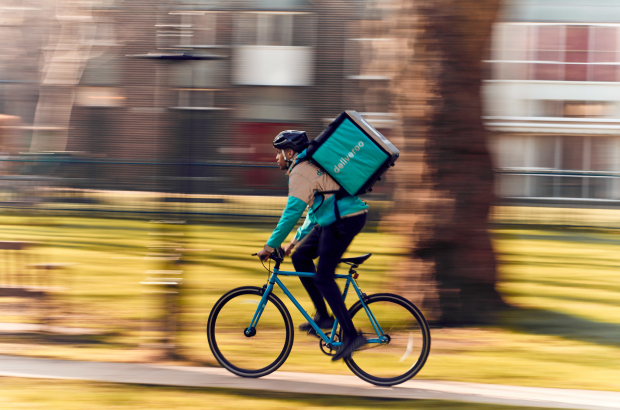- Daily & Weekly newsletters
- Buy & download The Bulletin
- Comment on our articles
Deliveroo fighting back against subcontracting fraud among couriers
Deliveroo couriers in Belgium might soon have to take selfies of themselves when they are working to combat employment fraud in the ranks.
Delivery people for takeaway services, such as Deliveroo and Uber Eats, do not have employment contracts with the company. In Belgium, they are paid under the sharing economy statute, which allows them to earn up to €6,250 a year tax-free. If they earn more than that, they must register as self-employed.
Couriers check in with the app to say when and where they are available to pick up and deliver orders. Up to now Deliveroo has allowed them to subcontract any potential deliveries – if they are sick or something unexpected comes up, for instance.
This privilege will now be taken away because it is being abused by couriers who use it all the time. Some couriers are known to simply subcontract their deliveries out to others who cannot legally work because they do not have residency status or are under 18.
They are essentially subcontracting their identities and right to work – and earning money on the deal. Couriers take a percentage of the subcontractor’s earnings, sometimes as much as 50%.
Inspections
“At the request of tax authorities, we have decided not to allow cycle delivery people working under the sharing economy statue to send a replacement courier,” says Rodolphe Van Nuffel of Deliveroo Belgium. “There needs to be a direct relationship between the courier and the customers, and that cannot be maintained with substitute couriers. Also, if the courier is not allowed to work in Belgium, then they are not covered by Deliveroo’s insurance.”
To combat subcontractor fraud, Deliveroo Belgium plans to check up on couriers whose activities are suspicious, such as changing a telephone number or address multiple times. It will also send inspectors into cities to check that the courier who shows up at the restaurant or customer’s address is who it is supposed to be.
It will also consider sending couriers spontaneous requests to send selfies of themselves picking up food or delivering it – a practice newly introduced in the UK, where Deliveroo is based, and France. “We are testing that system out first to see if it works there before rolling it out in Belgium,” says Van Nuffel.
He encourages customers who believe that such subcontractor fraud is happening to report it to Deliveroo.
Photo ©Deliveroo



















